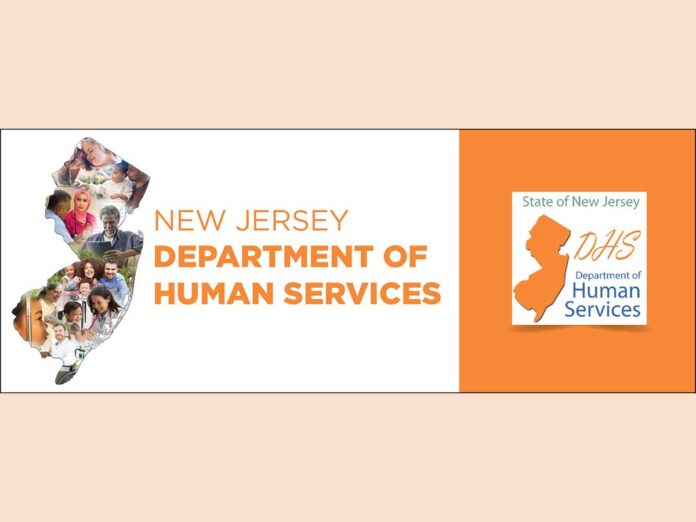New Jersey’s Department of Human Services (DHS) instituted a new LGBTQ-centric training program, ICARE, for state-funded social service agencies, homeless shelter providers and government departments, including DHS. A collaboration between New Jersey’s Division of Family Development, Rutgers University School of Social Work’s Institute for Families, and Hudson Pride Center, the two-year program is designed to educate service providers on the needs and experiences of LGBTQ+ identified individuals to eliminate barriers that they tend to face in seeking services.
Two components drive the program — the first is a needs assessment to focus on current LGBTQ-inclusive practices in New Jersey government-funded agencies, including what has been working and what needs improvement. The second part is the educational piece. The goal is to “create a baseline for what we hope is a lot of information to start improving courtesy, awareness, respect and education for the LGBTQ+ community,” said Theresa McCutcheon, managing director of the Institute for Families at Rutgers. “That’s really where the name of the project came from — ICARE — inclusion, courtesy, awareness, respect, education. There was education and training that needed to be done [to cover] everything from the language that we’re using, to understanding how to better talk about, define and understand identity, expression and a range of topics to start the conversation.”
Since its execution in June of this year, the ICARE program facilitators have trained 300 social service staff from over 65 organizations, said Sarah Adelman, acting commissioner of New Jersey’s DHS. So far, facilitators have largely delivered training sessions to staff at homeless shelters, for which DHS provides funding. The next leg of the program will focus on frontline staff in the state’s county social services offices, which provide cash assistance, Medicaid and related services. The short term goal of the program is to train 600 more staffers over the course of the next six months.
“We know beyond the homeless shelters that this training will help individuals with a better approach to fulfill services for this population,” Adelman added, “ensuring that individuals are treated with dignity and respect, and empathy to the situations they’ve gone through.”
The training sessions have thus far focused on the difference between sex assigned at birth, gender identity, gender expression, intersex status and sexual orientation; the discrimination that many LGBTQ people face that act as barriers to services; implicit bias; and proper use of pronouns and terms for varying gender identities and sexual orientations, said Hudson Pride Center Clinical Director David Rosen, one of the program’s trainers and curriculum developers.
“By teaching the service professionals about the community to humanize the community in the eyes of the providers, we’re hoping to chip away at the institutional trends and get policies and processes transformed,” Rosen said.
Training facilitators also examine specific cases to foster an understanding of intersectional identities and experiences, DHS’s Adelman added.
Some of those case scenarios include how to work with trans individuals who experience homelessness, and LGBTQ people who experience homophobia, familial rejection, housing instability, intimate partner violence, institutional racism, police brutality and combinations thereof. Issues pertaining to mental and physical health as well as addiction are also topics that are incorporated into the training sessions.
“Part of the goal of this training is to introduce real-life scenarios to the staff so they have better tools for how to interact with individuals who may have gone through any number of these situations,” Adelman said.
In its 2019 report, the Transgender Equality Task Force recommended that New Jersey implement an LGBTQ-competence training program for all state employees, including executive and frontline staff. The Task Force was signed into law in 2018 by Governor Murphy. This particular recommendation was made due to ongoing discrimination that trans and gender nonbinary individuals continue experience in job settings, housing and public accomodation, despite New Jersey laws established to protect them in those areas of life.
According to the Transgender Equality Task Force report, a substantial number of New Jerseyans who responded to the U.S. Transgender Survey indicated that they abstained from staying in shelters because they were worried about experiencing transphobia-fueled discrimination.
“Historically, the LGBTQ+ community has faced institutionalized discrimination when seeking services through public and private sector organizations that leave them inadequately serviced and their needs undermet,” Rosen said. “A lot of that has to do with the marginalization of their sexual orientation and gender identity due to homophobia, transphobia, heteronormative and cisnormative issues — that the community doesn’t meet expectations of how people in American culture should look, speak or behave.”
So far, service providers have been appreciative of and engaged in the training sessions, said Liz Salerno, who facilitates ICARE training sessions and works as training coordinator for the Institute of Families at Rutgers School of Social Work.
“There are a lot of questions about gender identity and gender expression, and where the challenges are arising for members of the community,” Salerno said. “Out of all the trainings that I’ve [done] there is a deep interest in and commitment in our audience to give the best possible service.”
Salerno emphasized the need to continuously develop training programs like ICARE as the needs of LGBTQ communities continue to evolve, adding that sometimes transphobia and homophobia permeate even the LGBTQ community.
“We have to welcome and accept and broaden every part of our community,” Salerno said. She also acknowledged that the longer LGBTQ individuals are allowed to be marginalized, the greater the damage done to the community.
“If we allow phobias and discrimination to progress, that does lead to violence,” she said. “We want that to stop.”
